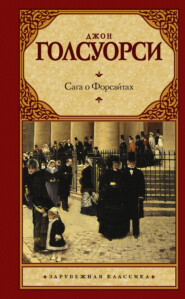По всем вопросам обращайтесь на: info@litportal.ru
(©) 2003-2025.
✖
The Burning Spear: Being the Experiences of Mr. John Lavender in the Time of War
Настройки чтения
Размер шрифта
Высота строк
Поля
“I knew he would be,” replied the young lady, with her joyous smile, “that’s why I put her on to you – the cat!”
At a loss to understand her meaning, Mr. Lavender, who had bent forward above the hedge in his eagerness to explain, lost his balance, and, endeavouring to save the hedge, fell over into some geranium pots.
“Dear Don Pickwixote,” cried the young lady, assisting him to rise, “have you hurt your nose?”
“It is not that,” said Mr. Lavender, removing some mould from his hair, and stifling the attentions of Blink; “but rather my honour, for I have allowed my duty to my country to be overridden by the common emotion of pity.”
“Hurrah!” cried the young lady. “It’ll do you ever so much good.”
“Aurora!” cried Mr. Lavender aghast, walking at her side. But the young lady only uttered her enchanting laugh.
“Come and lie down in the hammock!” she said you’re looking like a ghost. “I’ll cover you up with a rug, and smoke a cigarette to keep the midges off you. Tuck up your legs; that’s right!”
“No!” said Mr. Lavender from the recesses of the hammock, feeling his nose, “let the bidges bide me. I deserve they should devour me alive.”
“All right,” said the young lady. “But have a nap, anyway!” And sitting down in a low chair, she opened her book and lit a cigarette.
Mr. Lavender remained silent, watching her with the eyes of an acolyte, and wondering whether he was in his senses to have alighted on so rare a fortune. Nor was it long before he fell into a hypnotic doze.
How long Mr. Lavender had been asleep he could not of course tell before he dreamed that he was caught in a net, the meshes of which were formed of the cries of newspaper boys announcing atrocities by land and sea. He awoke looking into the eyes of Aurora, who, to still his struggles, had taken hold of his ankles.
“My goodness! You are thin!” were the first words he heard. “No wonder you’re lightheaded.”
Mr. Lavender, whose returning chivalry struggled with unconscious delight, murmured with difficulty:
“Let me go, let me go; it is too heavenly!
“Well, have you finished kicking?” asked the young lady.
“Yes,” returned Mr. Lavender in a fainting voice – “alas!”
The young lady let go of his ankles, and, aiding him to rise from the hammock, said: “I know what’s the matter with you now – you’re starving yourself. You ought to be kept on your back for three months at least, and fed on butter.”
Mr. Lavender, soothing the feelings of Blink, who, at his struggles, had begun to pant deeply, answered with watering lips:
“Everyone in these days must do twice as much as he ought, and I eat half, for only in this way can we compass the defeat of our common enemies.” The young lady’s answer, which sounded like “Bosh!” was lost in Mr. Lavender’s admiration of her magnificent proportions as she bent to pick up her yellow book.
“Aurora,” he said, “I know not what secret you share with the goddesses; suffer me to go in and give thanks for this hour spent in your company.”
And he was about to recross the privet hedge when she caught him by the coat-tag, saying:
“No, Don Pickwixote, you must dine with us. I want you to meet my father. Come along!” And, linking her arm in his, she led him towards her castle. Mr. Lavender, who had indeed no, option but to obey, such was the vigour of her arm, went with a sense of joy not unmingled with consternation lest the personage she spoke of should have viewed him in the recent extravagance of his dreaming moments.
“I don’t believe,” said the young lady, gazing down at him, “that you weigh an ounce more than seven stone. It’s appalling!
“Not,” returned Mr. Lavender, “by physical weight and force shall we win this war, for it is at bottom a question of morale. Right is, ever victorious in the end, and though we have infinitely greater material resources than our foes, we should still triumph were we reduced to the last ounce, because of the inherent nobility of our cause.”
“You’ll be reduced to the last ounce if we don’t feed, you up somehow,” said the young lady.
“Would you like to wash your hands?”
Mr. Lavender having signified his assent, she left him alone in a place covered with linoleum. When, at length, followed by Blink, he emerged from dreamy ablutions, Mr. Lavender, saw that she had changed her dress to a flowing blue garment of diaphanous character, which made her appear, like an emanation of the sky. He was about to say so when he noticed a gentleman in khaki scrutinizing him with lively eyes slightly injected with blood.
“Don Pickwixote,” said the young lady; “my father, Major Scarlet.”
Mr. Lavender’s hand was grasped by one which seemed to him made of iron.
“I am honoured, sir,” he said painfully, “to meet the father of my charming young neighbour.”
The Major answered in a voice as clipped as his grey bottle-brush moustache, “Delighted! Dinner’s ready. Come along!”
Mr. Lavender saw that he had a mouth which seemed to have a bitt in it; several hairs on a finely rounded head; and an air of efficient and truculent bonhomie tanned and wrinkled by the weather.
The table at which they became seated seemed to one accustomed to frugality to groan with flowers and china and glass; and Mr. Lavender had hardly supped his rich and steaming soup before his fancy took fire; nor did he notice that he was drinking from a green glass in which was a yellow fluid.
“I get Army rations,” said the Major, holding a morsel of fillet of beef towards Blink. “Nice dog, Mr. Lavender.”
“Yes,” replied Mr. Lavender, ever delighted that his favourite should receive attention, “she is an angel.”
“Too light,” said the Major, “and a bit too narrow in front; but a nice dog. What’s your view of the war?”
Before Mr. Lavender could reply he felt Aurora’s foot pressing his, and heard her say:
“Don Pickwixote’s views are after your own heart, Dad; he’s for the complete destruction of the Hun.”
“Indeed, yes,” cried Mr. Lavender with shining eyes. “Right and justice demand it. We seek to gain nothing!”
“But we’ll take all we can get,” said the Major.
“They’ll never get their Colonies back. We’ll stick to them fast enough.”
Mr. Lavender stared at him for a moment, then, remembering what he had so often read, he murmured:
“Aggrandizement is not our object; but we can never forget that so long as any territory remains in the hands of our treacherous foe the arteries of our far-flung Empire are menaced at the roots.”
“Right-o,” said the Major, “we’ve got the chance of our lives, and we’re going to take it.”
Mr. Lavender sat forward a little on his chair. “I shall never admit,” he said, “that we are going to take anything, for that would be contrary to the principles which we are pledged to support, and to our avowed intention of seeking only the benefit of the human race; but our inhuman foes have compelled us to deprive them of the power to injure others.”
“Yes,” said the Major, “we must just go on killing Germans and collaring every bit of their property we can.”
Mr. Lavender sat a little further forward on his chair, and the trouble in his eyes grew.
“After all’s said and done,” continued the Major; “it’s a simple war – us or them! And in the long run it’s bound to be us. We’ve got the cards.” Mr. Lavender started, and said in a weak and wavering voice:
“We shall never sheathe the sword until – ”
“The whole bag of tricks is in our hands. Might isn’t Right, but Right’s Might, Mr. Lavender; ha, ha!”
At a loss to understand her meaning, Mr. Lavender, who had bent forward above the hedge in his eagerness to explain, lost his balance, and, endeavouring to save the hedge, fell over into some geranium pots.
“Dear Don Pickwixote,” cried the young lady, assisting him to rise, “have you hurt your nose?”
“It is not that,” said Mr. Lavender, removing some mould from his hair, and stifling the attentions of Blink; “but rather my honour, for I have allowed my duty to my country to be overridden by the common emotion of pity.”
“Hurrah!” cried the young lady. “It’ll do you ever so much good.”
“Aurora!” cried Mr. Lavender aghast, walking at her side. But the young lady only uttered her enchanting laugh.
“Come and lie down in the hammock!” she said you’re looking like a ghost. “I’ll cover you up with a rug, and smoke a cigarette to keep the midges off you. Tuck up your legs; that’s right!”
“No!” said Mr. Lavender from the recesses of the hammock, feeling his nose, “let the bidges bide me. I deserve they should devour me alive.”
“All right,” said the young lady. “But have a nap, anyway!” And sitting down in a low chair, she opened her book and lit a cigarette.
Mr. Lavender remained silent, watching her with the eyes of an acolyte, and wondering whether he was in his senses to have alighted on so rare a fortune. Nor was it long before he fell into a hypnotic doze.
How long Mr. Lavender had been asleep he could not of course tell before he dreamed that he was caught in a net, the meshes of which were formed of the cries of newspaper boys announcing atrocities by land and sea. He awoke looking into the eyes of Aurora, who, to still his struggles, had taken hold of his ankles.
“My goodness! You are thin!” were the first words he heard. “No wonder you’re lightheaded.”
Mr. Lavender, whose returning chivalry struggled with unconscious delight, murmured with difficulty:
“Let me go, let me go; it is too heavenly!
“Well, have you finished kicking?” asked the young lady.
“Yes,” returned Mr. Lavender in a fainting voice – “alas!”
The young lady let go of his ankles, and, aiding him to rise from the hammock, said: “I know what’s the matter with you now – you’re starving yourself. You ought to be kept on your back for three months at least, and fed on butter.”
Mr. Lavender, soothing the feelings of Blink, who, at his struggles, had begun to pant deeply, answered with watering lips:
“Everyone in these days must do twice as much as he ought, and I eat half, for only in this way can we compass the defeat of our common enemies.” The young lady’s answer, which sounded like “Bosh!” was lost in Mr. Lavender’s admiration of her magnificent proportions as she bent to pick up her yellow book.
“Aurora,” he said, “I know not what secret you share with the goddesses; suffer me to go in and give thanks for this hour spent in your company.”
And he was about to recross the privet hedge when she caught him by the coat-tag, saying:
“No, Don Pickwixote, you must dine with us. I want you to meet my father. Come along!” And, linking her arm in his, she led him towards her castle. Mr. Lavender, who had indeed no, option but to obey, such was the vigour of her arm, went with a sense of joy not unmingled with consternation lest the personage she spoke of should have viewed him in the recent extravagance of his dreaming moments.
“I don’t believe,” said the young lady, gazing down at him, “that you weigh an ounce more than seven stone. It’s appalling!
“Not,” returned Mr. Lavender, “by physical weight and force shall we win this war, for it is at bottom a question of morale. Right is, ever victorious in the end, and though we have infinitely greater material resources than our foes, we should still triumph were we reduced to the last ounce, because of the inherent nobility of our cause.”
“You’ll be reduced to the last ounce if we don’t feed, you up somehow,” said the young lady.
“Would you like to wash your hands?”
Mr. Lavender having signified his assent, she left him alone in a place covered with linoleum. When, at length, followed by Blink, he emerged from dreamy ablutions, Mr. Lavender, saw that she had changed her dress to a flowing blue garment of diaphanous character, which made her appear, like an emanation of the sky. He was about to say so when he noticed a gentleman in khaki scrutinizing him with lively eyes slightly injected with blood.
“Don Pickwixote,” said the young lady; “my father, Major Scarlet.”
Mr. Lavender’s hand was grasped by one which seemed to him made of iron.
“I am honoured, sir,” he said painfully, “to meet the father of my charming young neighbour.”
The Major answered in a voice as clipped as his grey bottle-brush moustache, “Delighted! Dinner’s ready. Come along!”
Mr. Lavender saw that he had a mouth which seemed to have a bitt in it; several hairs on a finely rounded head; and an air of efficient and truculent bonhomie tanned and wrinkled by the weather.
The table at which they became seated seemed to one accustomed to frugality to groan with flowers and china and glass; and Mr. Lavender had hardly supped his rich and steaming soup before his fancy took fire; nor did he notice that he was drinking from a green glass in which was a yellow fluid.
“I get Army rations,” said the Major, holding a morsel of fillet of beef towards Blink. “Nice dog, Mr. Lavender.”
“Yes,” replied Mr. Lavender, ever delighted that his favourite should receive attention, “she is an angel.”
“Too light,” said the Major, “and a bit too narrow in front; but a nice dog. What’s your view of the war?”
Before Mr. Lavender could reply he felt Aurora’s foot pressing his, and heard her say:
“Don Pickwixote’s views are after your own heart, Dad; he’s for the complete destruction of the Hun.”
“Indeed, yes,” cried Mr. Lavender with shining eyes. “Right and justice demand it. We seek to gain nothing!”
“But we’ll take all we can get,” said the Major.
“They’ll never get their Colonies back. We’ll stick to them fast enough.”
Mr. Lavender stared at him for a moment, then, remembering what he had so often read, he murmured:
“Aggrandizement is not our object; but we can never forget that so long as any territory remains in the hands of our treacherous foe the arteries of our far-flung Empire are menaced at the roots.”
“Right-o,” said the Major, “we’ve got the chance of our lives, and we’re going to take it.”
Mr. Lavender sat forward a little on his chair. “I shall never admit,” he said, “that we are going to take anything, for that would be contrary to the principles which we are pledged to support, and to our avowed intention of seeking only the benefit of the human race; but our inhuman foes have compelled us to deprive them of the power to injure others.”
“Yes,” said the Major, “we must just go on killing Germans and collaring every bit of their property we can.”
Mr. Lavender sat a little further forward on his chair, and the trouble in his eyes grew.
“After all’s said and done,” continued the Major; “it’s a simple war – us or them! And in the long run it’s bound to be us. We’ve got the cards.” Mr. Lavender started, and said in a weak and wavering voice:
“We shall never sheathe the sword until – ”
“The whole bag of tricks is in our hands. Might isn’t Right, but Right’s Might, Mr. Lavender; ha, ha!”

















